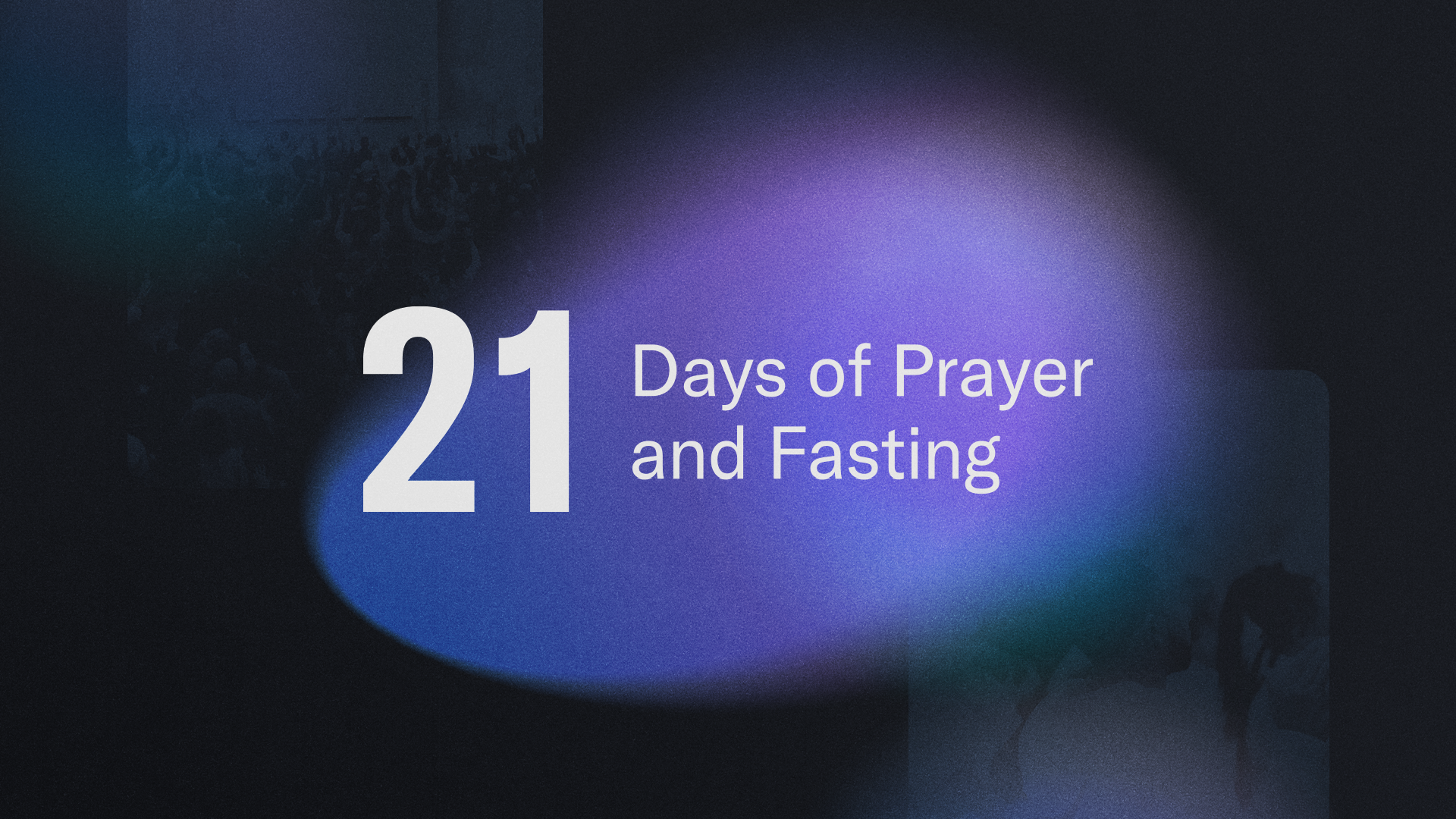

When asked about prayer before he passed away, Eugene Peterson replied, “We should shut up and listen.” All too often, though, “listening prayer” can turn into a purely personal and mystical experience. That’s not what Peterson meant in his intentionally strong word choice, because he explained how he listened. He memorized a series of Psalms, one for each morning of the week, and he began his day by praying one of those Psalms.
He would pray God’s words back to the One who inspired them, who literally breathed them out. In so doing, Peterson also breathed them out while hearing himself pray them. He listened to the Word while he prayed the Word.
This brings me to our theme for our annual 21 Days of Prayer + Fasting 2024, “Praying the Word.” There is little else we can do that will help us have the mind of Christ, like praying God’s Word together. This practice not only forms us spiritually to be more like Jesus, but it also offers a host of other benefits:
It gives us confidence that we are praying according to His will.
We pray with thanksgiving, from a posture of certainty and victory, because He’s already set Himself to do what we ask.
“This is the confidence we have in approaching God: that if we ask anything according to His will, He hears us. And if we know that He hears us—whatever we ask—we know that we have what we asked of Him” (1 John 5:14-15, NIV).
Praying the Word increases our love for Him.
We never divorce the words from the one who spoke them. So, praying God’s Word increases our experience of His loving presence, which in turn encourages our obedient response.
“Anyone who loves Me will obey My teaching. My Father will love them, and we will come to them and make our home with them. Anyone who does not love Me will not obey My teaching. These words you hear are not My own; they belong to the Father who sent Me” (John 14:23-24, NIV).
Satan hates the truth, and he fears the Word. So we must declare it over every issue, challenge or decision in our lives. Just as Jesus Himself said in the face of the devil’s lies, “It is written.”
Praying the Word strengthens our trust in His faithfulness.
Many of the rhythms we cherish remind us of God’s faithfulness: gathering to worship, retelling His Good News, and communion. We need to hear repeatedly of God’s trustworthiness, even if we hear it from our own lips.
“Faith comes by hearing, and hearing by the word of God” (Rom. 10:17, NKJV).
Praying the Word gives us a voice when we’re at a loss for words.
Sometimes, we’re heartbroken and speechless. It is then that God’s words must become our own.
“Rescue me from the mire, do not let me sink; deliver me from those who hate me, from the deep waters. Do not let the floodwaters engulf me or the depths swallow me up or the pit close its mouth over me. Answer me, Lord, out of the goodness of Your love; in Your great mercy turn to me. Do not hide Your face from Your servant; answer me quickly, for I am in trouble. Come near and rescue me; deliver me because of my foes” (Ps. 69:14-18, NIV).
Praying the Word declares truths that are a powerful spiritual force.
Satan hates the truth, and he fears the Word. So we must declare it over every issue, challenge or decision in our lives. Just as Jesus Himself said in the face of the devil’s lies, “It is written.”
“The weapons we fight with are not the weapons of the world. On the contrary, they have divine power to demolish strongholds” (2 Cor. 10:4, NIV).
In the final movement of Isaiah’s prophecy (Isa. 56-66), he called Israel to repentance and painted a glorious portrait of a new heaven and Earth. Before he began, the Spirit offered these words:
“As the rain and the snow come down from heaven, and do not return to it without watering the earth and making it bud and flourish, so that it yields seed for the sower and bread for the eater, so is My word that goes out from My mouth: It will not return to Me empty, but will accomplish what I desire and achieve the purpose for which I sent it” (Isa. 55:10-11, NIV).
When we pray God’s Word, we have an assurance that what we have prayed is already established. May it be so throughout the 21 days as we both literally pray the Word and pray in accordance with the truth of the Word.
